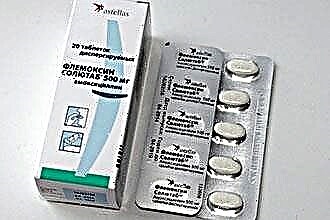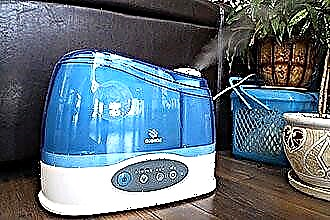Angina (tonsillitis) belongs to the group of infectious diseases, the cause of which is hemolytic streptococcus. To a lesser extent, cases of the disease caused by staphylococcus, corynebacteria and other pathogens are recorded.
Treatment of tonsillitis depends on the form of the disease, the sensitivity of pathogenic microorganisms to antibacterial drugs, as well as the duration and characteristics of the course of pregnancy.
Symptomatically, pathology can be suspected based on the appearance of a sore throat, subfebrile fever, and malaise. A not pronounced intoxication syndrome indicates the development of a catarrhal form of angina. At this stage, it is still possible to cure the disease without antibacterial agents in case of early treatment.
At this stage, it is still possible to cure the disease without antibacterial agents in case of early treatment.
With an increase in hyperthermia to febrile numbers, an increase in soreness in the throat when swallowing, talking, difficulty opening the mouth, an increase in intoxication, one should suspect a follicular, lacunar form of tonsillitis. They are distinguished by the appearance of a purulent component of inflammation. Purulent masses are localized in follicles or lacunae, cover the surface of the tonsils.
With the progression of the disease, the ulcerative-necrotic stage develops, when ulcerative foci form on the tonsils, the films become gray, dull. When you try to remove plaque yourself, an open wound with an uneven bottom remains. In the subsequent necrosis covers the surrounding tissues, the posterior pharyngeal wall, uvula, palatine arches, soft palate.
The development of complications indicates the spread of the infection through the bloodstream.
Of the general complications, it is worth highlighting rheumatic fever with damage to the valve apparatus of the heart, the development of myocarditis, endocarditis, pericarditis, renal dysfunction (glomerulonephritis, pyelonephritis), migratory polyarthritis, sepsis.
With a limited pathological process, an abscess appears when the amygdala becomes tense with a varnished surface, filled with purulent discharge. With the spread of purulent masses to the surrounding tissues, structures, phlegmon with indistinct boundaries develops.
In addition, there is an increased risk of complications such as neck swelling and bleeding that require immediate medical attention. With an increase in edema, breathing becomes difficult, which leads to insufficient oxygen supply to the fetus, the appearance of hypoxia. Bleeding is possible from the blood vessels that feed the tonsils if they undergo purulent fusion.
On the part of the embryo, hypoxia leads to a violation of the development of organs and systems. The risk of placental abruption and other pathologies also increases, as a result of which spontaneous abortion, premature birth, and fetal fading are possible.
Prevention of sore throat
 Preventive measures to prevent the development of tonsillitis include recommendations that can reduce the risk of many diseases of infectious origin. Even at the stage of planning pregnancy, a woman needs to undergo a preventive course of treatment in the presence of chronic diseases.
Preventive measures to prevent the development of tonsillitis include recommendations that can reduce the risk of many diseases of infectious origin. Even at the stage of planning pregnancy, a woman needs to undergo a preventive course of treatment in the presence of chronic diseases.
Exacerbation of inflammatory, infectious pathology during pregnancy leads to a decrease in immune defense, as a result of which the body is more prone to infection. For 9 months, a woman is recommended:
- minimize communication with sick people;
- avoid crowds during flu epidemics;
- strengthen immunity with vitamins;
- visit the pool;
- regularly ventilate the room, carry out wet cleaning;
- avoid hypothermia, drafts, getting wet in the rain;
- devote enough time to sleep, rest;
- follow a complete nutritious diet;
- dress warmly;
- walk in the fresh air, preferably in a park area;
- avoid stress.
If, nevertheless, angina develops during pregnancy in the second trimester - how and how to treat it?
Therapeutic tactics for angina
In comparison with the first months, angina during pregnancy in the second trimester is not so dangerous, but it also requires special attention. Tonsillitis therapy provides for the mandatory prescription of antibacterial drugs necessary to combat an infectious pathogen. This prevents the spread of infection throughout the body, damage to internal organs.
Timely initiation of treatment for catarrhal sore throat makes it possible to avoid antibiotic therapy and prevent the development of complications.
 What does a pregnant woman need first of all? When soreness or even sore throat appears, it is necessary to begin intensive rinsing with antiseptic solutions. This will allow to suspend the progression of the inflammatory process, the spread of pathogenic microorganisms, to reduce their activity before a diagnosis is made.
What does a pregnant woman need first of all? When soreness or even sore throat appears, it is necessary to begin intensive rinsing with antiseptic solutions. This will allow to suspend the progression of the inflammatory process, the spread of pathogenic microorganisms, to reduce their activity before a diagnosis is made.
If a catarrhal form is diagnosed, treatment may be limited to frequent rinsing, irrigation of the tonsils, resorption of tablets with antimicrobial action. After 3 days, the severity of symptoms is significantly less, which indicates a positive trend in treatment.
If the pain sensations are rapidly increasing, hyperthermia reaches 38 degrees and above, malaise, loss of appetite, joint aches, myalgia worries, you should suspect the appearance of purulent inflammation.
Follicular, lacunar sore throat therapy includes:
- Strict bed rest, which helps to restore strength, to avoid the development of undesirable consequences.
- A plentiful warm drink allows you to normalize the water balance, because with fever, shortness of breath, fluid loss increases. In addition, an adequate drinking regime reduces hyperthermia, activates the elimination of toxins from the body.
- Vitamin therapy, which involves taking vitamin complexes, citrus fruits, tea with raspberries, currants.
- A complete nutritious diet. The "pregnant" period precludes adherence to diets, especially during illness. The body of a woman and an embryo must daily receive a sufficient amount of proteins, fats, carbohydrates to maintain the vital activity of cells. This makes it possible to replenish energy reserves, to provide the necessary "material" for the growth, development of organs and systems of the fetus.
- Frequent airing of the room, wet cleaning.
- Antibiotic therapy.
- Local therapy (rinsing, irrigation of the tonsils).
- Fighting hyperthermia.
Antibiotic therapy
The appointment of antibacterial agents is necessary to combat the pathogenic pathogen, preventing the generalization of the infectious process. Not all drugs are approved for use by pregnant women.
Remember that fluoroquinolones, aminoglycosides, sulfonamides, tetracyclines lead to the appearance of mutations, various defects in the fetus! In this regard, the choice of medicines during pregnancy is carried out exclusively by a doctor.
At the doctor's appointment, the dose is determined, the duration of taking the drugs, taking into account the period, the characteristics of the course of pregnancy, the severity of concomitant diseases. The choice of antibiotics is due to the sensitivity of pathogenic microorganisms to the drug, the presence of allergic reactions, chronic diseases in a pregnant woman.
Why are some types of antibacterial agents banned?
- doxycycline, tetracycline affect the bone structures of the embryo, are able to accumulate in the tooth germs, liver, as they easily penetrate the placental barrier;
- fluoroquinolones to a greater extent affect cartilage tissue, bones;
- macrolides have a general toxic effect on the fetus;
- aminoglycosides lead to kidney damage, the organ of hearing;
- chloramphenicol suppress hematopoietic function by disrupting cell division, damage to the bone marrow, especially in the 2nd trimester;
 co-trimoxazole, when penetrating the placenta, leads to the development of cardiac defects.
co-trimoxazole, when penetrating the placenta, leads to the development of cardiac defects.
Treatment of angina during pregnancy is carried out with the following types of antibacterial agents:
- penicillins (amoxicillin, flemoxin) are prescribed in the first place, as the safest;
- cephalosporins (cefepime, cephalexin, ceftriaxone) - safe, used in the presence of allergic reactions or ineffectiveness of penicillins;
- macrolides (sumamed, azithromycin) are used under medical supervision, do not cause developmental anomalies in acceptable doses.
Sore throat relief
Local treatment involves the use of:
- gargling with antiseptic solutions, for example, miramistin, chlorophyllipt, chlorhexidine. From solutions based on herbs, rotocan is allowed;
- irrigation of the tonsils with antiseptics in the form of a spray (chlorophyllipt, tantum-verde, inhalipt);
- tablet forms of antimicrobial agents (lysobact, pharyngosept).
Miramistin does not penetrate the placental protection, is not absorbed into the general bloodstream, does not require dilution, therefore it is absolutely safe for use. Chlorhexidine is also allowed during pregnancy, as it is not absorbed into the bloodstream.
With an anti-inflammatory purpose, rinsing with a solution of pharmacy chamomile, tea tree oil (2 drops per glass of water) is prescribed.
Antipyretic drugs
 When the temperature rises to 37.5 degrees, it is recommended to use physical methods of cooling, for example, a warm shower, plenty of drinking, rubbing with a solution of vinegar diluted with water.
When the temperature rises to 37.5 degrees, it is recommended to use physical methods of cooling, for example, a warm shower, plenty of drinking, rubbing with a solution of vinegar diluted with water.
If these methods are ineffective, the temperature reaches 38 degrees, antipyretics (antipyretic drugs) based on paracetamol should be used.
Aspirin in tablet form or in solution is prohibited for use.
Prolonged fever increases fluid loss, which leads to dehydration, and also reduces oxygen delivery to the embryo, as a result of which it suffers from hypoxia.
Folk recipes
To strengthen the immune system, traditional medicine advises using a mixture of ground lemons with peel and sugar (to taste). It is recommended to take a teaspoon 4 times a day. However, you should be careful with women who have high acidity of gastric juice, as heartburn may disturb.
Another recipe involves taking half a teaspoon of a mixture of grated apple, a small onion with the addition of 2 tablespoons of honey three times a day.
For rinsing, an effective solution is a combination of salt, soda (1 teaspoon each) in a glass of water. If there is no allergy to iodine-containing preparations, then it is allowed to add 2 drops of iodine. Rinse twice a day.
In warm water with a volume of 250 ml, you can dissolve 15 g of propolis, gargle every hour. A decoction of dried blueberries is also suitable for rinsing (boil 100 g in 500 water until a residual volume of 300 ml is obtained).
No matter how effective the treatment at home is, medical supervision must be present. This will allow timely correction of therapy, to prevent the occurrence of adverse reactions. At the first symptoms of sore throat, it is recommended to immediately consult a doctor.

 co-trimoxazole, when penetrating the placenta, leads to the development of cardiac defects.
co-trimoxazole, when penetrating the placenta, leads to the development of cardiac defects.

